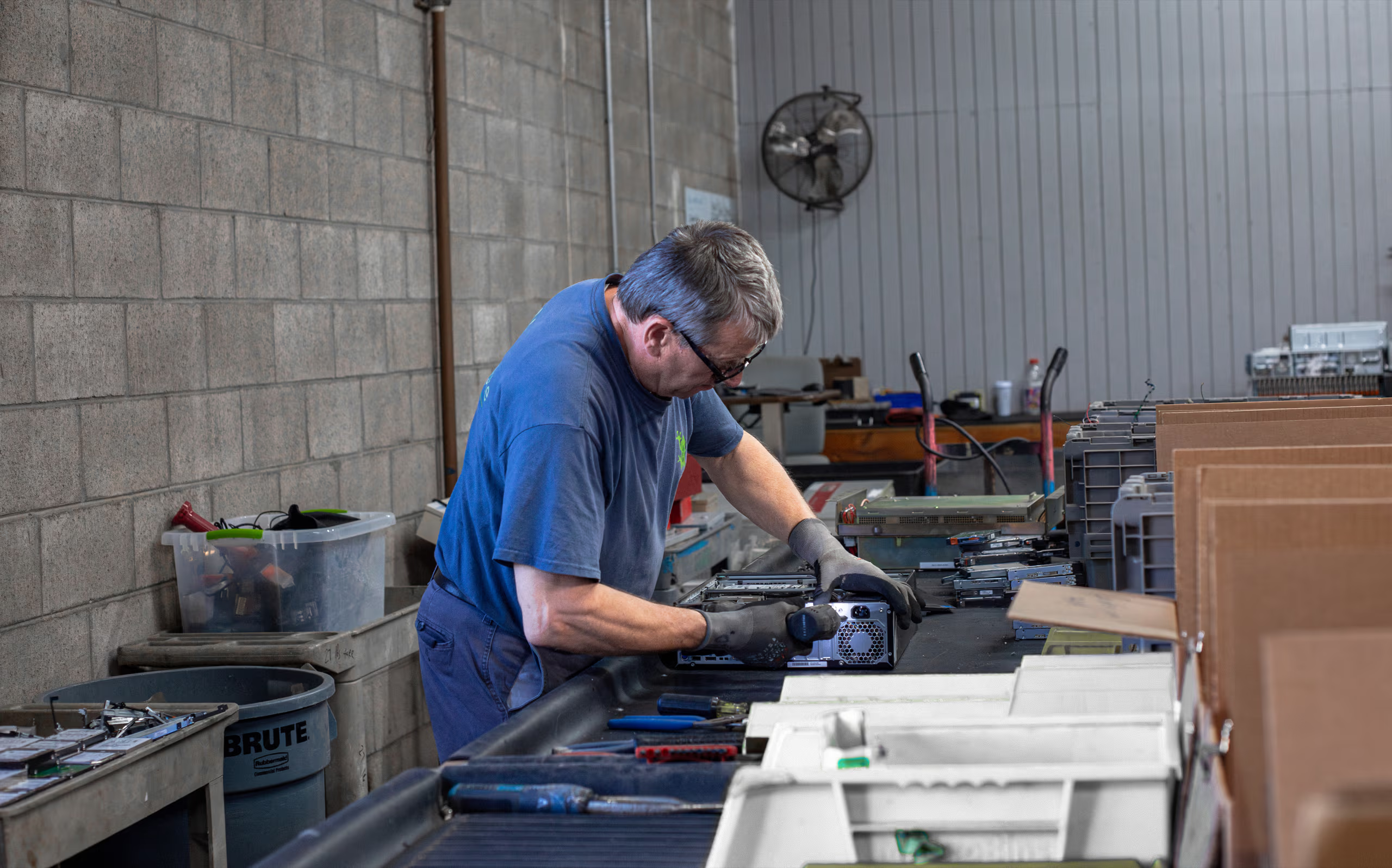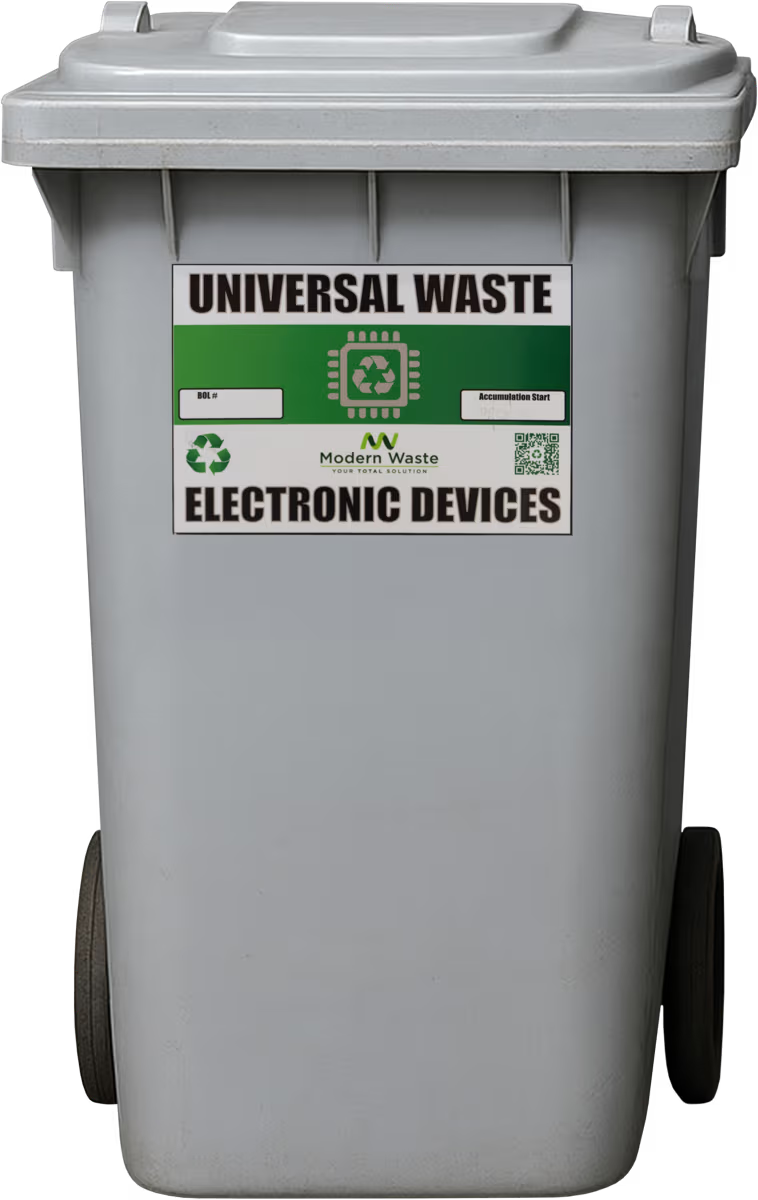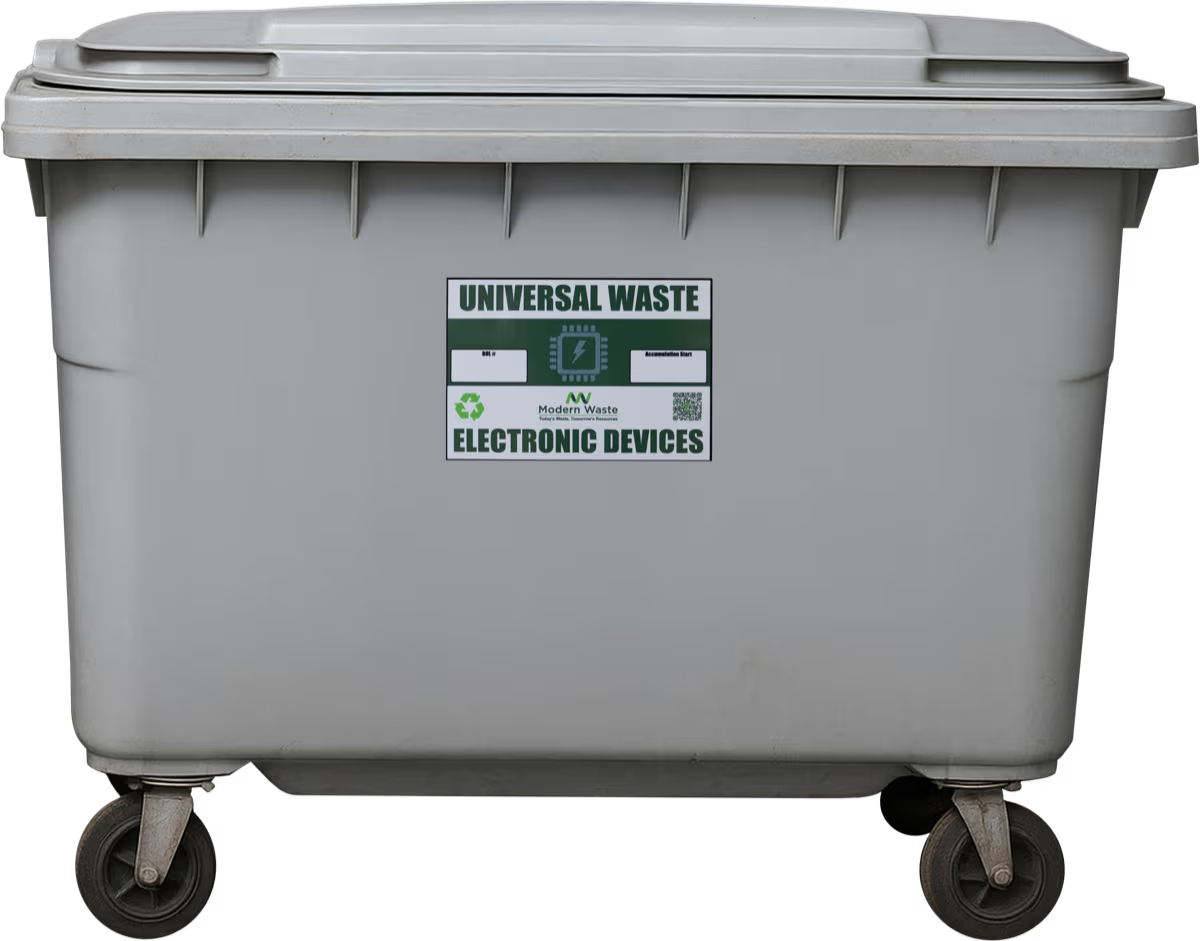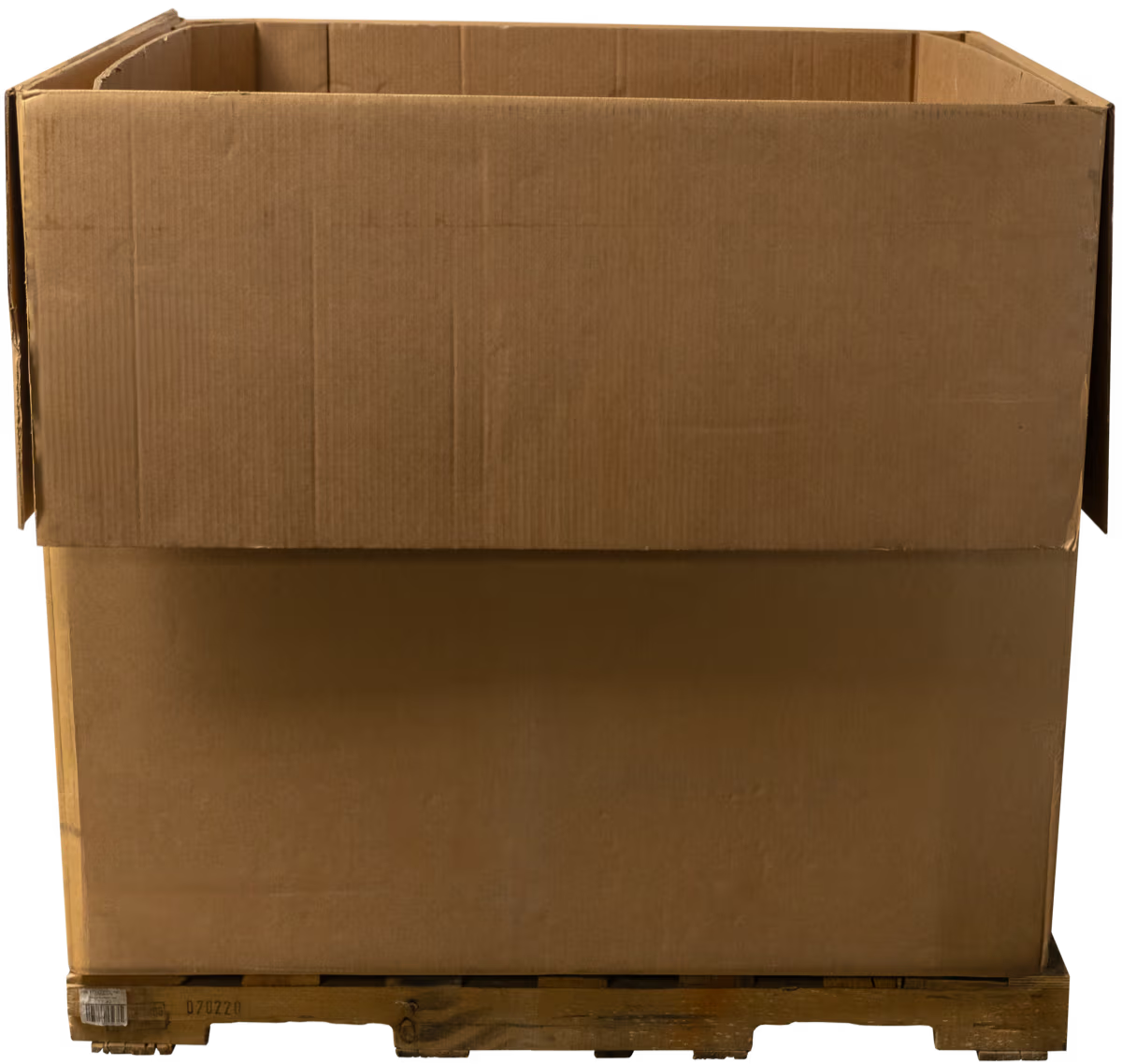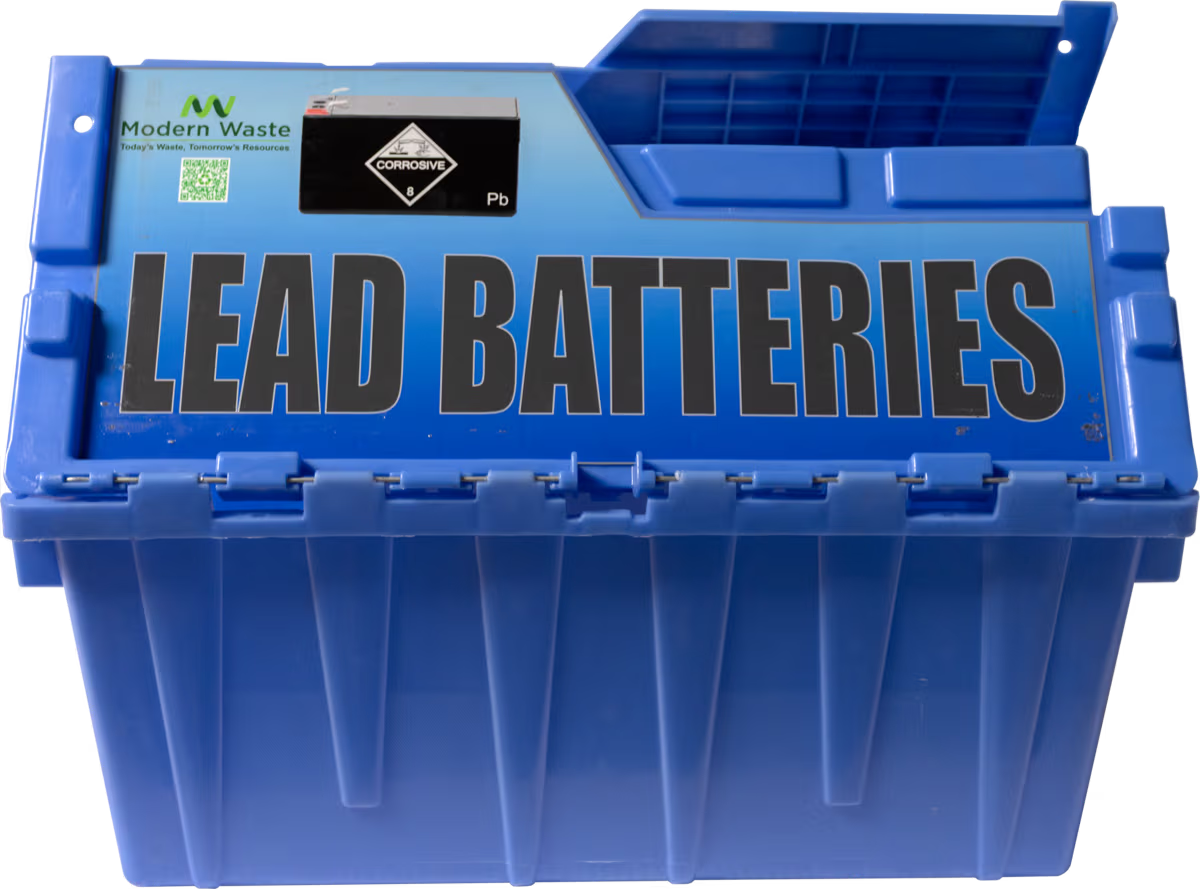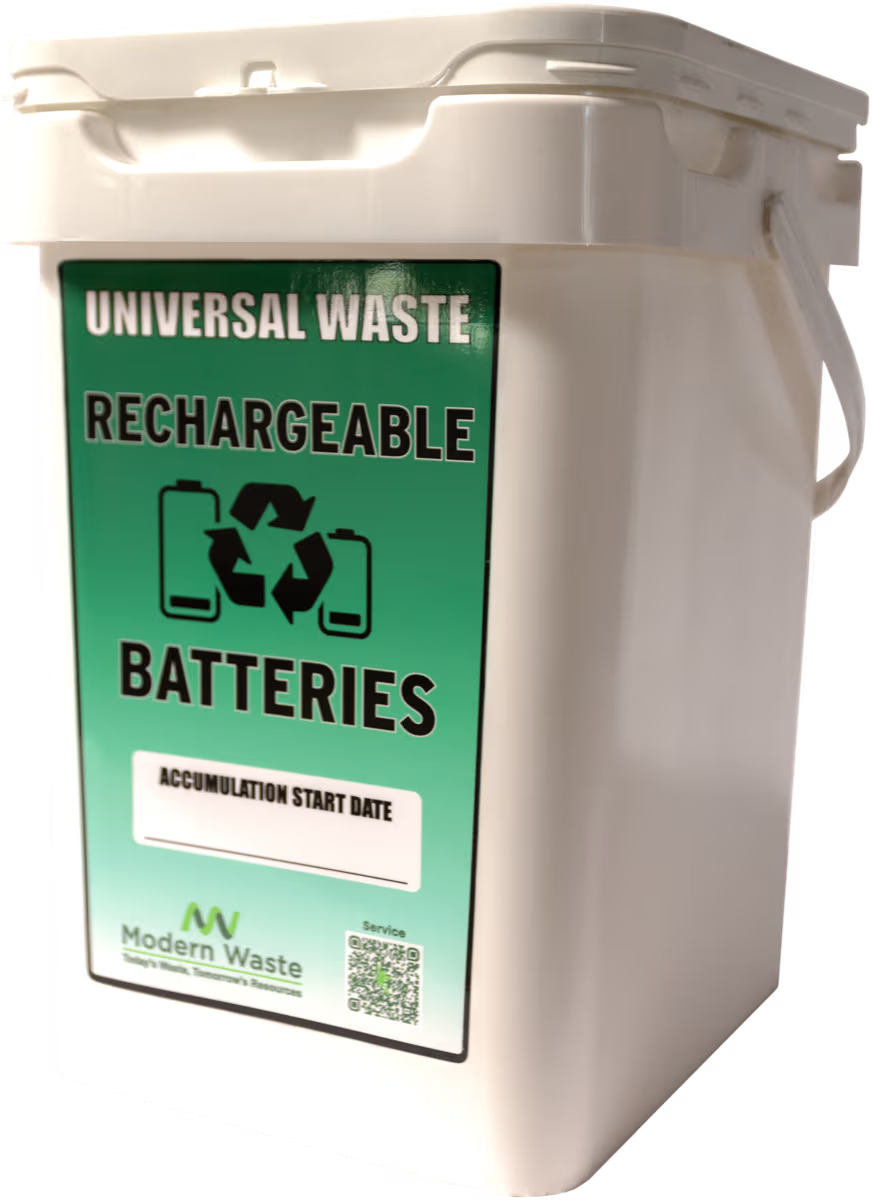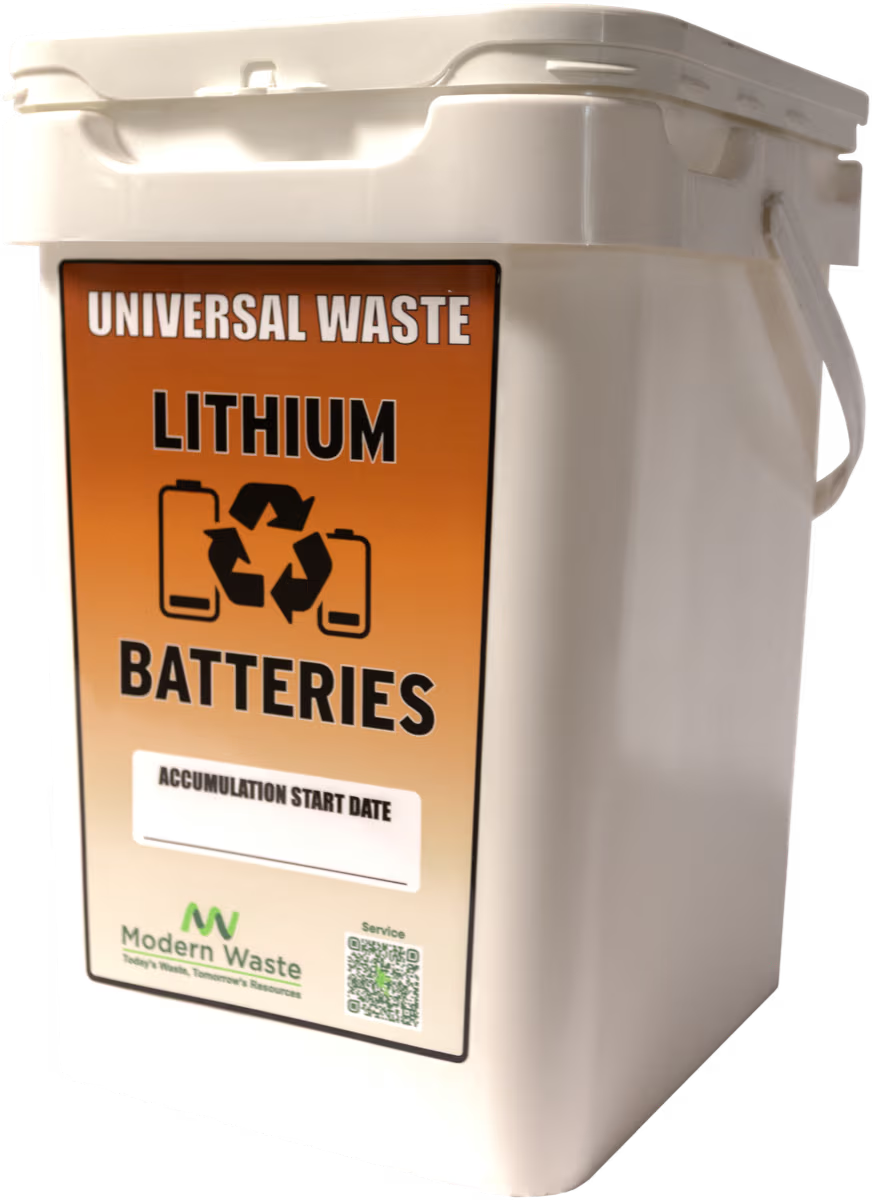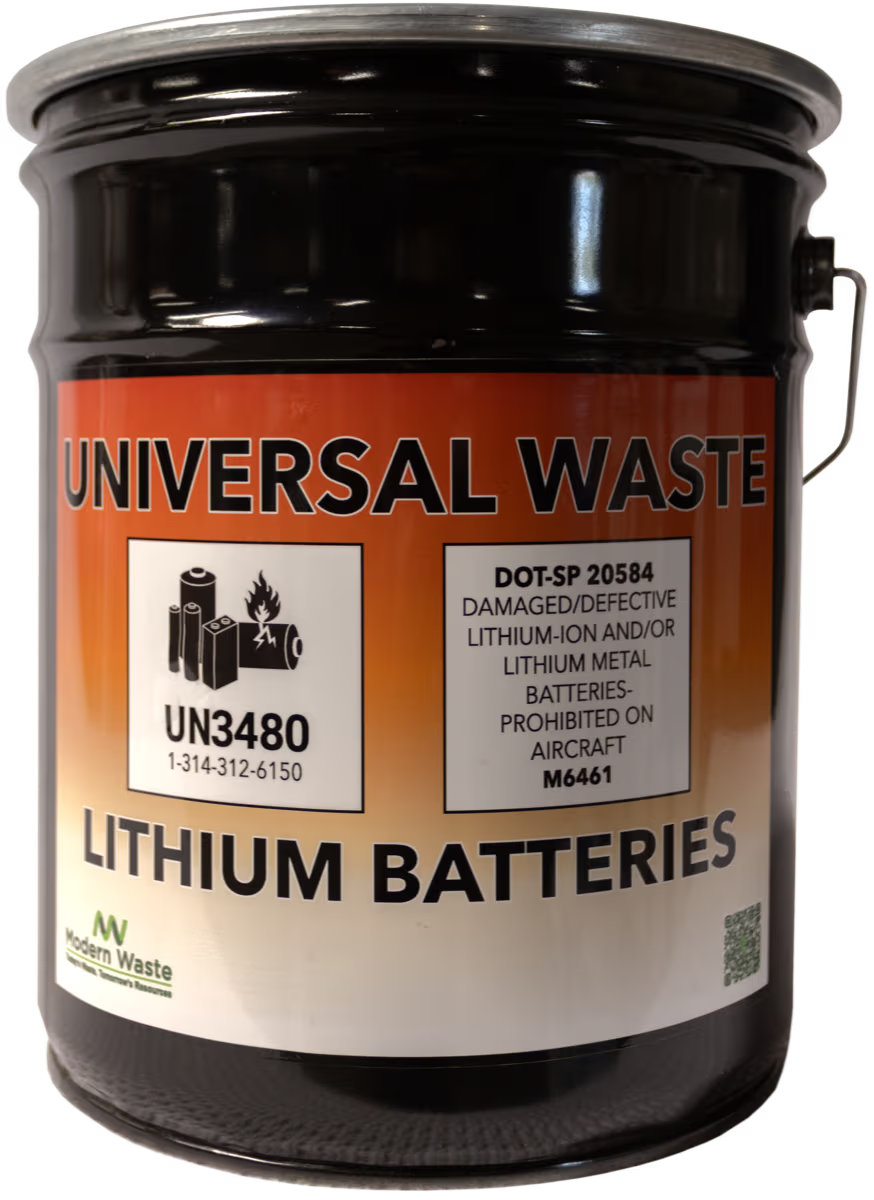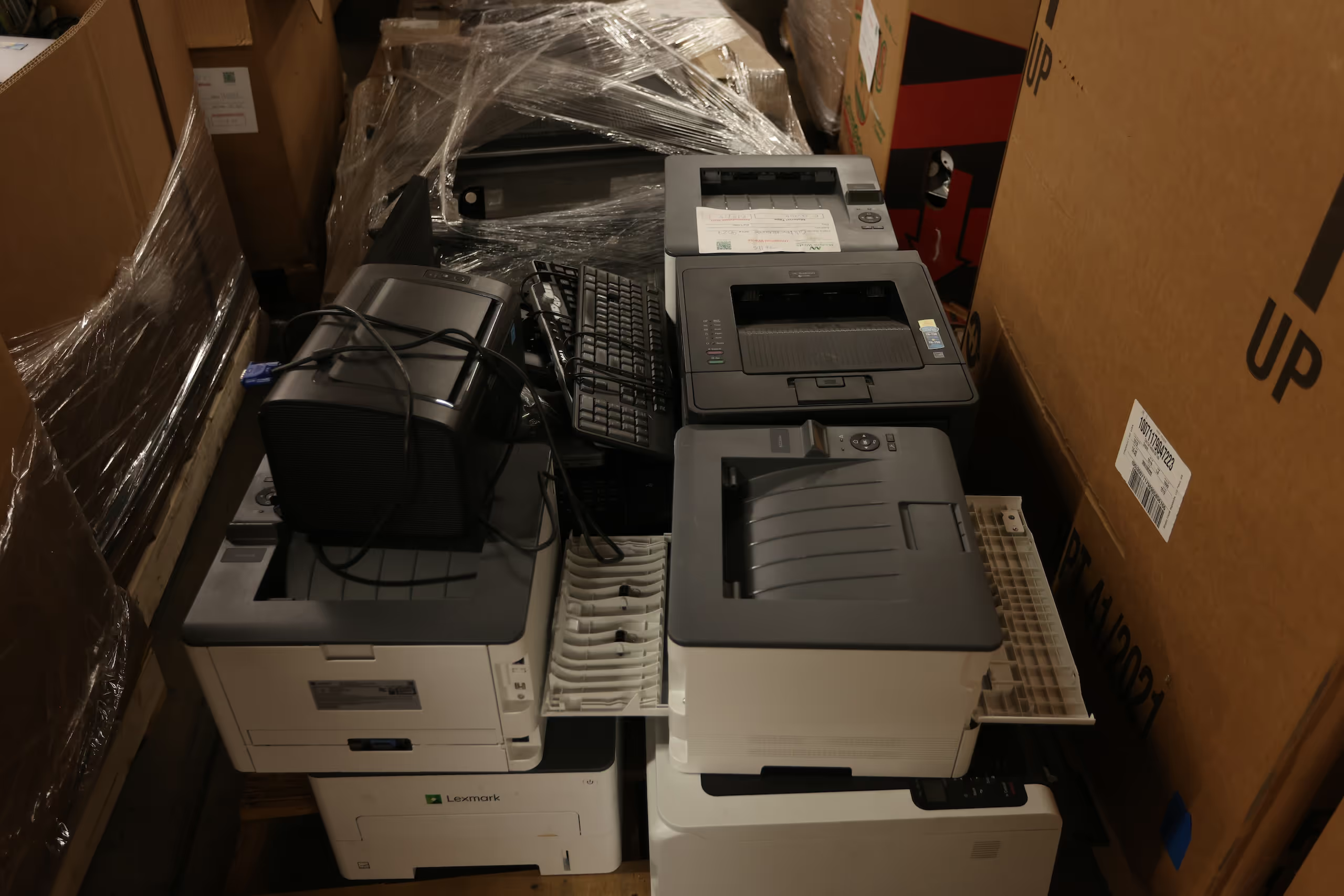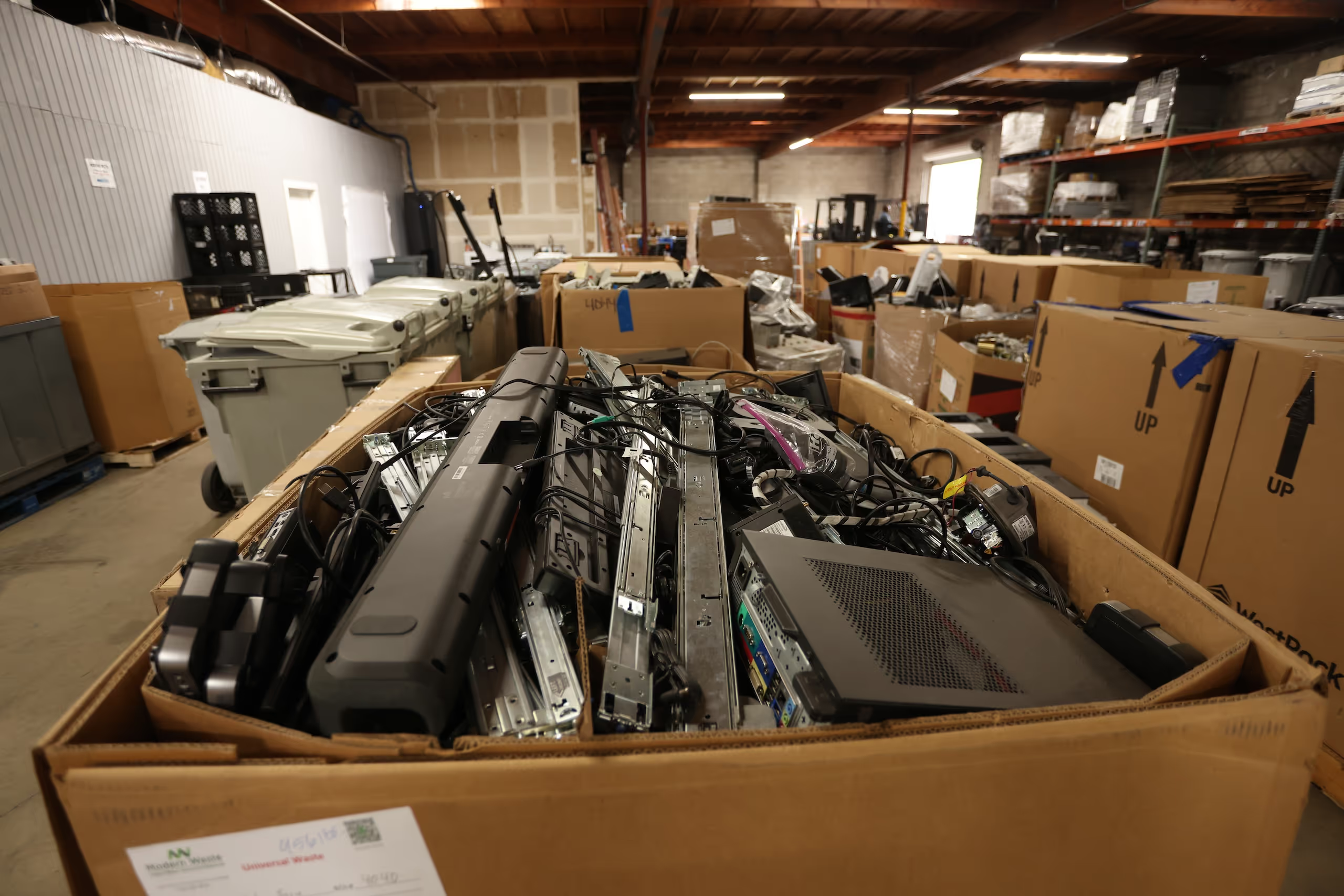“Today’s Waste, Tomorrow’s Resources”
At Modern Waste, sustainability isn’t a buzzword—it’s the foundation of everything we do. The phrase “Today’s waste, tomorrow’s resources” perfectly captures our approach: minimize environmental impact while maximizing the value recovered from materials.
When we talk about sustainability, we focus on two key outcomes:
- Minimizing environmental harm
- Maximizing material value
Levels of Sustainability
Not all sustainable practices are created equal. Here’s how we prioritize them:
- Full Reuse (Highest Impact)
Reusing whole devices as they were originally manufactured is the gold standard. It avoids additional energy usage and adds immediate value back to your bottom line. - Component Reuse
Even if a device can’t be reused in full, parts can still be salvaged and repurposed—minimizing manufacturing demands and waste. - Recycling (Last Resort)
Recycling requires energy to separate, melt down, and refine raw materials. While still better than disposal, it consumes resources and creates emissions.
Real Examples of Sustainable Practices
🖥️ Computers
Every computer has a useful lifespan, much of it dictated by software compatibility.
- If a system can still run current software, we sanitize the data, test the hardware, and return it to the market for reuse.
- If it can’t, we salvage components to reduce the need for manufacturing new parts.
🔋 Alkaline Batteries
Alkaline batteries are shredded and separated using heat or chemicals. The recovered materials include:
- Zinc and manganese concentrate
- Steel
- Paper and plastic
These are then reused in manufacturing, agriculture, and other industries—reducing demand for virgin resources.
🌱 At Modern Waste, sustainability means smarter systems, less waste, and real results—for your business and the planet.
